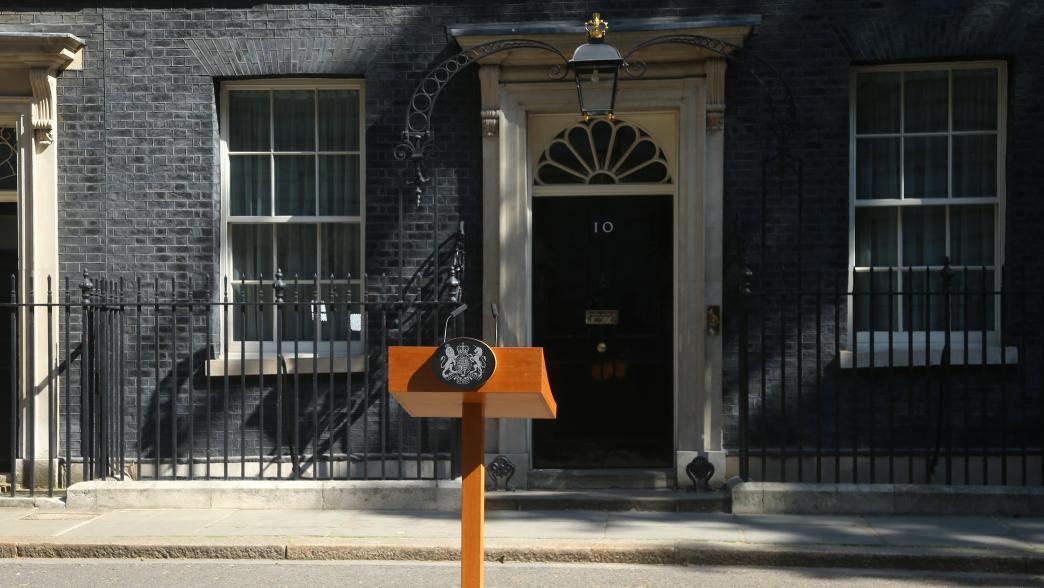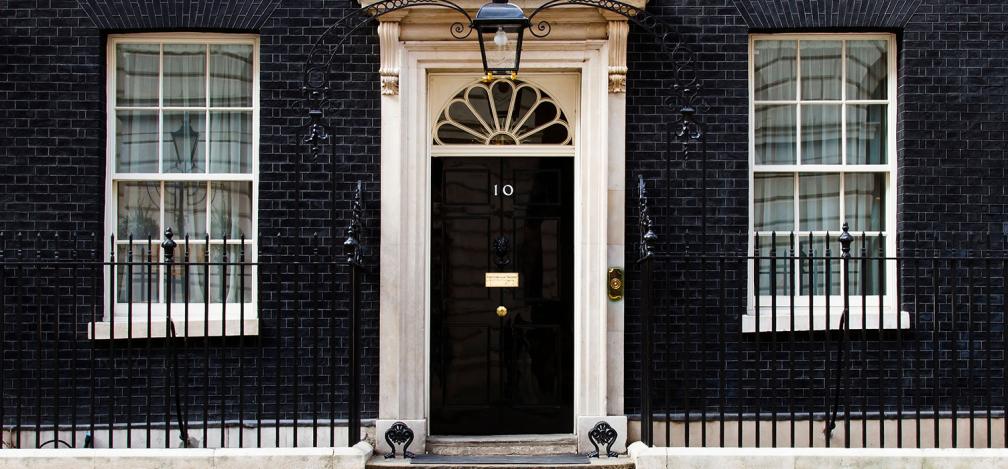It is time to level up No.10 Downing Street
Britain's centre of government is not set up for either strategy or focus.

Ian Mulheirn sets out the three interlocking changes that are required if the centre of government is to meet the challenges facing Britain
There is a growing sense that nothing works in Britain. From failed Trident missile tests to two lost decades of wage growth, the causes are many and varied. But at least part of the problem lies in the listlessness of successive governments. Their inability to set and deliver a strategic vision can be traced to the failure of the institutions at the very centre of the British state, which is running a 19th century operating system that simply isn’t up to the task of providing effective government in the 21st century. If it wants to succeed, as the Institute for Government has set out, the next administration will need to reboot the centre of government.
Britain's centre of government is not built for the modern world
For much of the past 14 years the policy agenda has swung wildly. We’ve seen big state conservatism from Boris Johnson, small state radicalism from Liz Truss, and salami-slicing managerialism from Rishi Sunak. We went from from the ‘greenest government ever’ to ‘cutting the green crap’. Industrial strategies have gone in and out of fashion while train networks have been half built before being truncated. A decade in which business taxes went down and the income tax personal allowance went up, has been followed by the same party of government making a concerted effort to reverse both of those agendas. Inevitably different prime ministers will have different priorities. But in recent years it’s felt like the Grand Old Duke of York has been in charge.
If the legitimacy of liberal democracy depends on its ability to deliver for people, then ours is in grave danger. Its ability to do so is severely hampered by the paradoxical combination of a highly centralised system with a weak and ineffective centre.
And it’s getting worse. Francis Fukuyama has argued that liberal democracies risk falling into decay if their institutions, created for a different time, fail to adapt to a changing world. If political institutions are patterns of behaviour that outlast the individuals who operate them at any one time, then for all its symbolism Britain’s centre of government is sorely lacking the structures that could make it effective in the modern world.
Power with purpose: Final report of the Commission on the Centre of Government
Why the centre of government has failed successive prime ministers – and seven recommendations for radical reform.
Read the report
Number 10 is too easily distracted and too prone to micromanagement
Delivering change requires government to have a clear and sustained focus on a set of policy priorities. But the centre of government appears wholly incapable of delivering this. By turns, distracted by the Siren song of 24-hour news and social media, and entangled in policy micromanagement without the appropriate expertise, Number 10 is not set up for either strategy or focus.
And rudderless short-termism becomes self-reinforcing. The political costs of changing tack are low if commitment to the previous direction of travel was weak. Stakeholders in the private sector won’t get on board with a government agenda that changes with the seasons, further undermining the effectiveness of government and amplifying calls for a change of direction.
This strategic vacuum is filled by a powerful, well-structured and capable Treasury asserting its legitimate institutional priorities across government. A common misdiagnosis is that an overmighty Treasury – staffed with its phalanx of whip smart orthodoxy acolytes – is a source of the country’s problems. But for the most part this misunderstands the causation: only when the centre is weak does strategy come to be dictated by narrow financial imperatives.
So it’s time to level up Number 10. The ability of governments to articulate and stick to a strategic direction depends in part on their life expectancy. But it also depends on their willingness consciously to put in place the institutional arrangements that enable that. If the next government is to succeed, No. 10 needs to bind itself to the mast of strategy and let the ship of state chart a steady course through the melee. Doing so requires three interlocking changes.
Watch a summary of the key findings of our Commission on the Centre of Government
The next government must address the centre's institutional frailties
First, on taking office the next government should translate its manifesto into a practical and binding programme for government. Rather than a list of policies, this published document would articulate a set of long-term strategic priorities that range across departmental silos to inform the inevitable trade-offs when governing from day to day. A powerful first secretary of state, sitting within a newly resourced Department of the Prime Minister and Cabinet, in place of the Cabinet Office, should be charged with its delivery.
A better resourced No. 10 is critical to give it the heft to drive that vision. Key to this will be a ‘priorities group’ containing teams of officials focused on providing the prime minister with weighty economic advice independent of the Treasury, driving the policy priorities across Whitehall, monitoring their delivery and tackling emergent problems.
Third we need a radical overhaul of how departmental budgets are set. If the government is to deliver on its agenda, both the fiscal framework and spending review process must be aligned to it. To achieve that some have advocated taking the spending control function out of the Treasury, as happens in several other Anglophone countries. But a less radical reorganisation can achieve the same result. The task of setting fiscal rules and departmental budgets should be owned jointly by the chancellor, first secretary and prime minister to serve the stated priorities of the government. This should be underpinned by structures that ensure similarly collaborative official support and a process that moves away from the kind of bilateral budget negotiations between the Treasury and individual departments that frustrates cross-cutting approaches to complex problems.
With the general election approaching, the next government will be faced with a barrage of daunting problems from its first day. It will have little hope of gripping those issues if the centre of government fails to address its many institutional frailties. The fate of the new administration, and the public’s faith in our political system, hangs on its success in doing so.
Ian Mulheirn leads the Resolution Foundation’s wealth research programme. He was previously executive director of the UK policy unit and chief economist at the Tony Blair Institute, and has worked as an economics adviser at the Treasury.
Ian was a commissioner on the IfG's Commission on the Centre of Government
- Political party
- Conservative Labour
- Department
- Cabinet Office Number 10 HM Treasury
- Public figures
- Rishi Sunak Liz Truss Boris Johnson David Cameron Simon Case Gordon Brown Tony Blair Nick Clegg
- Publisher
- Institute for Government